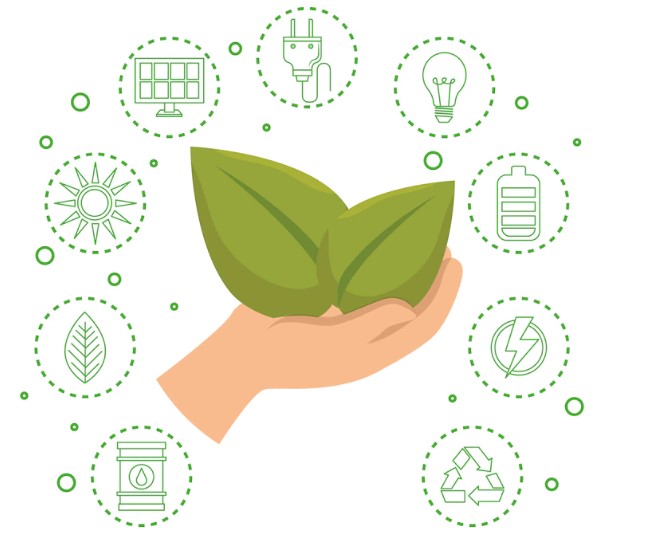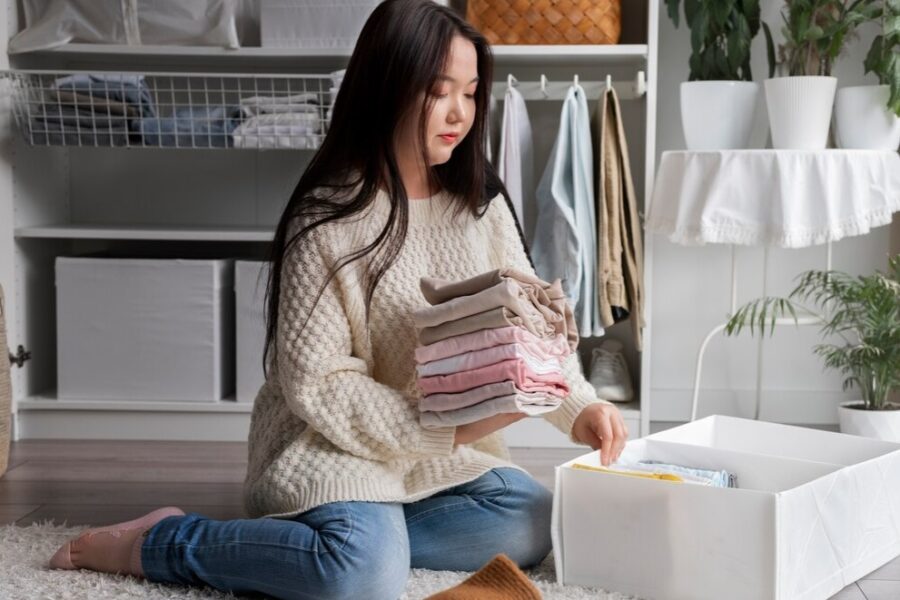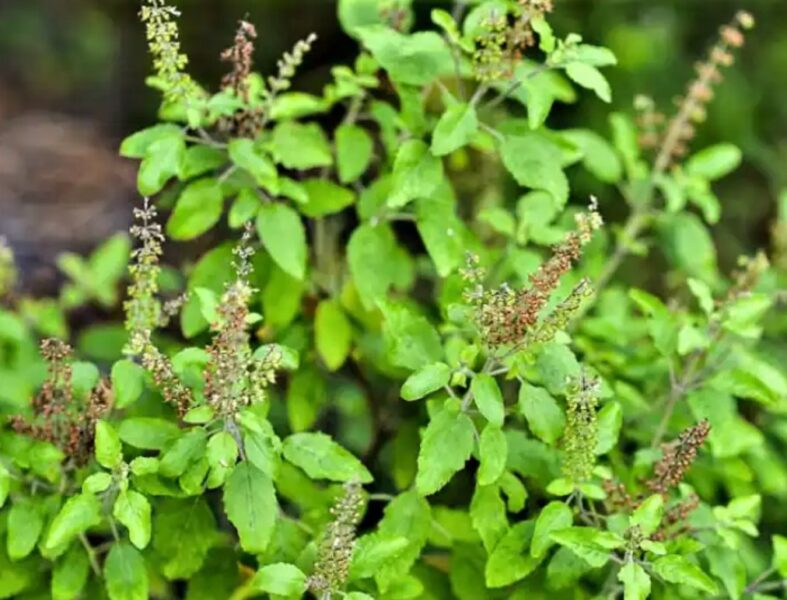

The four main causes of pollution are CO2 emissions, single-use plastic, Water Drainage and Chemical emissions. Although not everyone can afford Energy Star appliances or solar panels, we can all make tiny adjustments in our own houses. These adjustments are quick and easy on the wallet, yet they are effective and may make your home more environmentally friendly.
Here are 12 easy modifications to make your home more sustainable:
1. Use cold water to hand wash your clothes
According to Energy Star, a washing machine uses up to 90% of its energy to heat the water. Use your washing machine on the cold water option instead of heating the water when using the washing machine.
By doing this, you not only cut down on carbon dioxide emissions but also extend the lifespan of your clothing because hot water may damage the fabric and dull the color of your beautiful clothing.
Running your washing machine on the hot water setting is absolutely pointless unless you're dealing with stains that are very difficult to remove, like oil stains. Try the warm option if you think the cold water setting isn't doing the job right. It's still more energy-efficient than the hot water option, yet it works better for cleaning than the cold water setting.
PRO TIP: Use Micro-plastic Catcher in your washing machines to stop the microplastics from your synthetics to get merged in the Drainage.
2. Avoid using the dryer when possible
It almost seems a pity not to dry your clothes outside during the warm and sunny months. Drying clothes on a line outside in the sunshine has its unique charm. Not to add, drying your clothing and bedding out on a drying rack rather than in the dryer can extend their lifespan.
Install a drying rack on your balcony and leave the windows open to let the sun dry your clothes more quickly if you don't have a garden or backyard where you can line-dry them.
3. DIY Instead Of Buying New
Why buy new when you can use your imagination and work together as a family on a fun weekend project? You may discover a variety of do-it-yourself tips at Inspire, Design & Create to assist you in totally remodeling your house. If you are prepared to commit to the DIY lifestyle, they also feature tool evaluations that you could find helpful.
4. Swap Regular Light Bulbs For LED Bulbs
The correct energy-efficient light bulbs are a significant investment. Your home will become more ecologically friendly as well as require less power. Despite how appealing incandescent lights are, LED bulbs are a superior option. They help you save money over time, are environmentally friendly, and last longer.
5. Get a compost bin
Any home gardener with an outside space large enough for one needs a compost bin. Composting is a green approach to dispose of food and garden waste in addition to promoting the health of your potted plants and border plants.
Compost enhances soil structure, provides plants with food, and balances the pH of the soil, so your garden will benefit as well.
6. Segregate your waste at the source
You'll be more aware of recycling glass bottles, jars, paper, and other materials if you have a recycle container at home.
Using a compost bin, you may dispose of leftovers and gain free fertilizer for your plants. Compost containers today are made to be clean, orderly, and odorless. Additionally, they simplify your life by assisting you in minimizing domestic trash.


You may also like: What to grow in your terrace Garden in India
7. Plant seasonal herbs
If you are unsure what to do with the fertilizer, planting your herb garden is the solution. Herbs don't require much room. You may grow them indoors in little pots near a window with plenty of sunlight. The main benefit? For your favorite meals, fresh herbs will always be available.
8. Decorate Your House With Plants
Plants are an excellent way to purify the air indoors. Additionally, they are charming and improve the ambiance of your house. Taking care of plants requires responsibility, but it is unquestionably worthwhile.
9. Get Window Treatments
The purpose of the curtains and blinds is to keep the heat and cold air outside and keep curious neighbors at bay. Even with the windows shut, heat and cold air can still enter. Your house may feel like an oven in the summer if you don't have a large tree to shade it from the sun.
It's undoubtedly a terrific approach to regulating the temperature and making your house more ecologically friendly by upgrading your curtains and blinds. It's not to run the air conditioner nonstop.
10. Be Smarter In The Kitchen
Many people believe it is inefficient to purchase a toaster, so they bake their toast in the oven instead. However, the oven consumes a lot of electricity to heat up correctly, making it inefficient to use if you intend to cook two pieces of bread.
The toaster works more quickly and with less energy. Every time you bake or cook something, ensure the oven door is closed correctly by giving it a quick check. Heat is significantly lost when the oven door is left open.
If you enjoy coffee, go to a drip coffee maker from a pod coffee maker. Since pods are required, pod coffee machines are not at all environmentally friendly. Every year, the plastic capsules accumulate in landfills. All you need for drip coffee machines is ground coffee.
Last but not least, make sure you reduce food waste by learning how to properly plan, prepare, and store meals.
PRO TIP: Do not invest in single-use gadgets like egg boiler, apple cutter and so on. Instead get multi-purpose gadgets when shopping for the kitchen.
11. Get a Water Filter
If you stop using plastic water bottles, your household will instantly become more environmentally friendly, regardless of whether you choose a whole-house, under-sink, faucet, or pitcher filter. A water filter helps lessen the amount of single-use plastic in landfills while saving time and money.
PRO TIP: Check the level of water wastage in your water filter before buying
12. Use Homemade Natural Cleaning Products
The effectiveness of natural cleaning agents is on par with conventional ones. However, they are devoid of hazardous substances that are terrible for the environment or your health.
Natural cleaning supplies can cost more, and not everyone can afford them. To produce your cleaning products, however, you may use vinegar, baking soda, and lemon juice.





